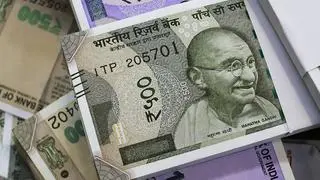The opportunity provided by the enactment of the Insolvency and Bankruptcy Code (IBC) must be seized by banks to overcome the debilitating problem of corporate loan delinquency so that they get back into the mainstream of financial intermediation going ahead, according to the RBI Governor Urjit Patel.
Referring to the authority IBC conferred on the RBI to issue directions to banks to initiate resolution processes, Patel said it scales up the latter’s ability to deal decisively with stress in banks’ balance sheets and unclog the flow of credit to grease the wheels of growth.
“The recently chalked out recapitalisation plan of the government for public sector banks will ensure that flows to productive sectors (and credit-worthy borrowers) are not impeded and growth impulses are nurtured.
“The government has also proposed to take steps to improve the corporate governance of public sector banks (PSBs) by strengthening boards, bringing objectivity into management appointments, and decentralising decisions to the professional board,” said Patel at a recent CAFRAL conference on ‘Financial System and the Macroeconomy’.
Effective deterrenceOn the new Enforcement Department, which was established in April this year to help the RBI concentrate on its mandate to develop a rule-based, consistent framework to deal with breaches of law, rules and directions, the Governor said effective deterrence enforced through such actions is expected to contribute to strengthening the credit culture overall. Underscoring that the economy is at an important juncture, Patel said “Our recent growth numbers may have disappointed some in the first quarter, but the second quarter has recorded an uptick and the slowdown may well be bottoming out.
“If one sees far, structural changes that come with temporary disruptions can be growth and efficiency-augmenting in the medium to long term. This is what has happened, for instance, with the introduction of the GST.”
GST should yield gains that will mean better tax compliance and a more efficient tax system that in turn will impart a permanent upward push to our growth. To add one more important reform to the list, there has been substantial liberalisation of Foreign Direct Investment policy, embraced by FDI investors with record inflows to India, said Patel.








Comments
Comments have to be in English, and in full sentences. They cannot be abusive or personal. Please abide by our community guidelines for posting your comments.
We have migrated to a new commenting platform. If you are already a registered user of TheHindu Businessline and logged in, you may continue to engage with our articles. If you do not have an account please register and login to post comments. Users can access their older comments by logging into their accounts on Vuukle.